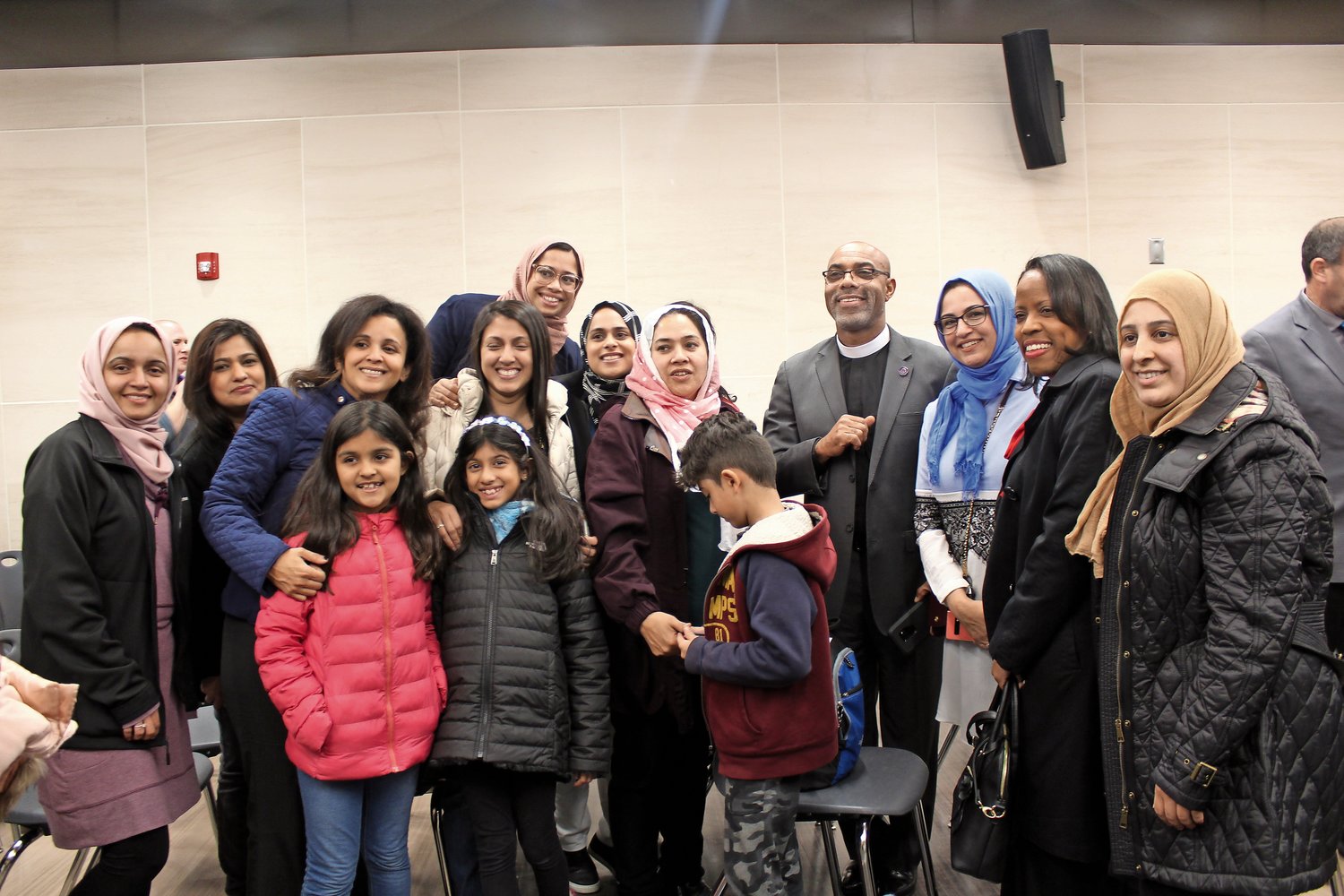Sewanhaka CHSD to give students day off for Eid al-Fitr
After nearly two years of petitioning the Sewanhaka Central High School District Board of Education for days off from school on Eid holidays that fall during the school year, Muslim parents’ and students’ efforts finally paid off on Jan. 26, when Superintendent James Grossane announced that May 3, 2022 — the date of Eid al-Fitr — will be a Superintendent’s Conference Day.
Students are off from school on Superintendent’s Conference Days, Grossane explained in a virtual meeting whose audio was streamed to YouTube. That will allow Muslim students to take part in the holiday festivities without requiring the school district to make Eid al-Fitr an official school holiday — something district officials are not legally authorized to do unless a certain percentage of students would be absent that day.
Without a day off, Muslim community members have argued, students may feel pressured to attend school and miss out on their families’ celebrations of the end of the holy month of Ramadan.
Rafia Ahmed, a student at New Hyde Park Memorial High School, said at a Sewanhaka school district board meeting in December 2019 that when she was forced to attend school on Eid one year, she was drowning in homework when she got home, and was unable to spend time with her loved ones on the holy day. At the same meeting, Wali Owais, who was then a sophomore at Elmont Memorial High School, said he did not believe the district respected his religion as much as it respected others, adding, “I believe that Muslim students have the right to follow their religion.”
Rukshana Khan, a student at New Hyde Park High also spoke at the 2019 meeting, recounting how she once missed school to celebrate Eid, and spent two weeks trying to catch up on what she had missed that day in her Advanced Placement classes and the accumulated work of the classes that followed. So, Khan said, she had to beg her parents to let her go to school for a few hours on Eid the following year.
Stories such as these moved New Hyde Park High mother Farhana Islam to choke up at the meeting, because, she said, they reminded her of when she was growing up in New York City, where her holidays were never officially recognized. “When will it finally be our turn to feel as though we’re a part of the community,” Islam asked the board members, “and not just out in the margins any longer?”
In 2018, Islam had begun petitioning the New Hyde Park-Garden City Park Union Free School District to add Eid al-Fitr and Eid al-Adha (which commemorates the end of the holy pilgrimage to Mecca) to the elementary district’s calendar, but the board told her that the calendar was dependent on the decisions of the Sewanhaka District.
So Islam organized a group of Muslim parents and students to speak at the 2019 meeting, and Hadiqa Sandhu, now a senior at H. Frank Carey High School, started speaking at every board meeting about the toll going to school on a religious holiday takes on students, and persuaded some of her non-Muslim friends to show their support for the inclusion of Muslim holidays on the school calendar.
“Even though we had plenty of parents speaking up for the students,” Sandhu said, “I believed it was important that the board heard from the students themselves on how we felt.”
Those parents, meanwhile, began meeting privately with Grossane in early 2020, when Islam first suggested that Eid al-Fitr be a Superintendent’s Conference Day. She got the idea, she said, from other members of the Eid Holiday Coalition — a group of parents, students and activists trying to get Eid recognized on school calendars across Long Island.
But the coronavirus pandemic closed schools shortly thereafter, delaying the discussions until September, when Muslim parents once again started sending requests to the Sewanhaka school board using its public-comment form.
“We just kept being told, ‘We’ll give you an answer in January,’” Islam said. As she listened at the board meeting last Tuesday, she was shocked to hear that the students would get the day off next year. “I was just like, ‘What? Did this actually happen?’” Islam said.
The move comes as, advocates say, the Sewanhaka district is becoming more diverse. In the 2018-19 school year, data from the State Education Department shows, the district’s student body was 24 percent Black, 20 percent Hispanic, 23 percent Asian or Pacific Islander and 33 percent white. The department does not categorize students by religion, but, Islam said, this year, two of the five valedictorians in the district are Muslim — Shazman Shahid, of Elmont High, and Hiba Agha, of Sewanhaka High School.
“Our community is changing, and we must change with it,” Sandhu said, adding that even though she is a senior at Carey, she was “ecstatic and overjoyed” when she heard the news, because “so many students will benefit from all the work we did for years to come, and that’s the whole point.”






